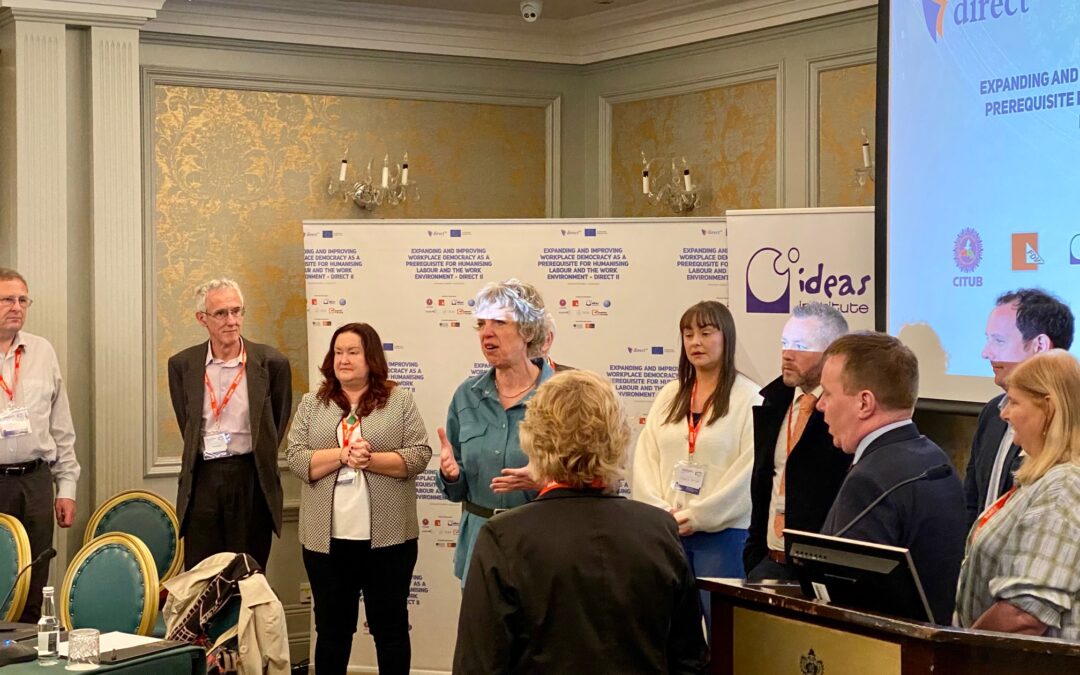As of October 2020, ISTURET joined CITUB in the project DIRECT II. The two-year project is promoted by the Confederation of Independent Trade Unions in Bulgaria. It is focused on trends in direct employee participation in seven EU Member States (Bulgaria, Cyprus, Ireland, Italy, Poland, UK and Spain) aiming to explore the impact of direct employee participation on industrial relations on company level and to explore a number of good practice examples of enterprises in the partner countries that have successfully introduced new technologies (of whatever form) with the full co-operation of employees, through a process of direct participation. The project seeks also to continue to explore some of the practices of direct participation, which are introduced under traditional technologies and to compare them with the practices of direct participation, which are introduced as a result of the introduction of new technologies. The project is aiming to research if direct participation in management even in the introduction of new technologies, can improve efficiencies, productivity, better work organization and the commitment of the workforce, including opportunity for workers to suggest ideas for organisational innovation; contribute to improving workers qualifications and skills; humanise the working environment through, for example, the introduction of flexible working time; improved occupational health and safety; allow for flexibility in executing tasks, including job rotation and homeworking; as well as appropriate forms of remuneration relating to the introduction of new technologies.
The project includes various research activities, round tables and workshops, including a final conference.
Readers can find information on the projects results within the project’s website library section, available at:
https://2.direct-project.org/library/english
The project aims to influence the policies of the following target
groups: trade union representatives at company level; other workers representatives; workers and employees; enterprise managers; trade union and employer organizations at the EU and Member State level; and national and EU policy-makers.

